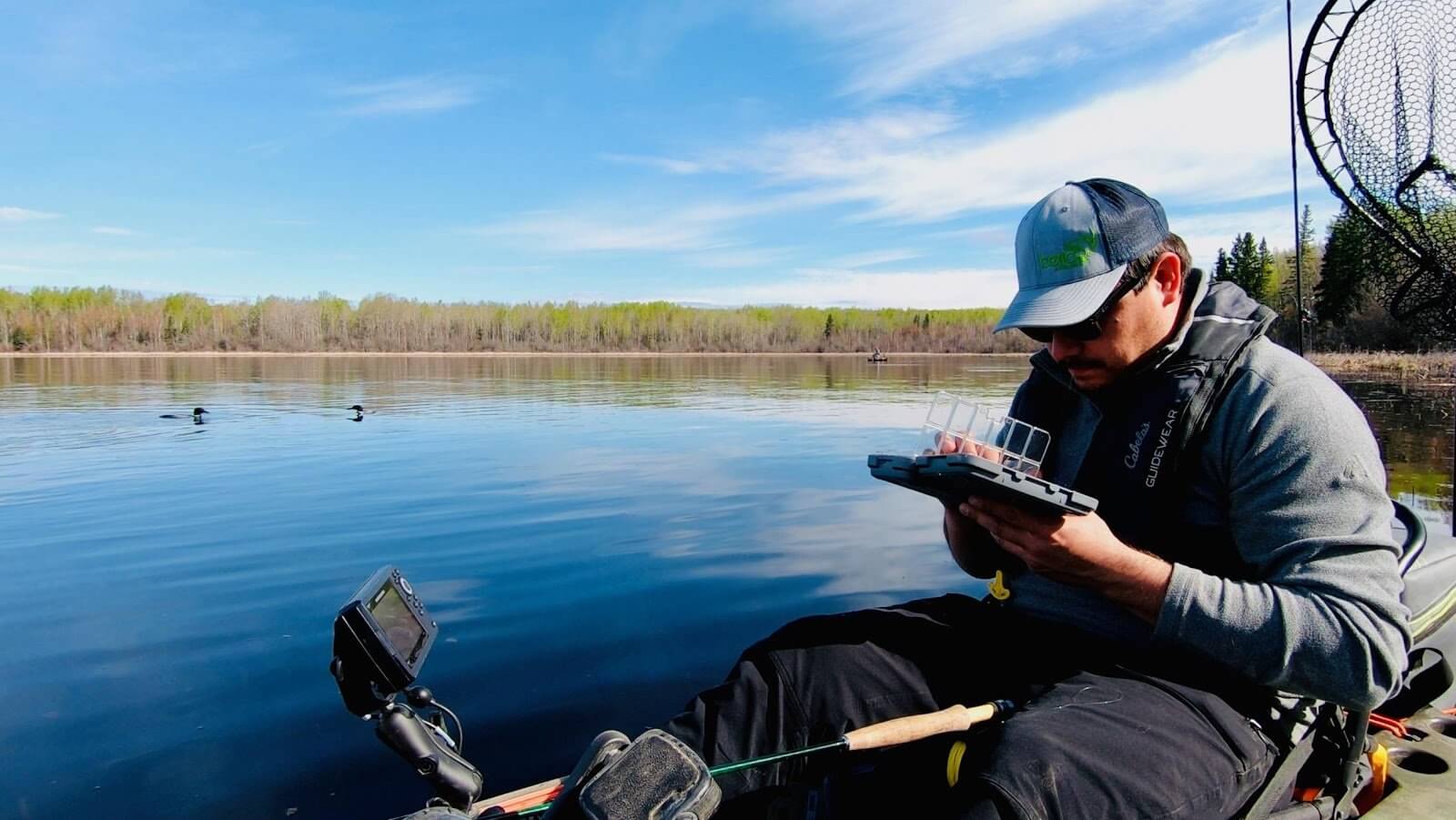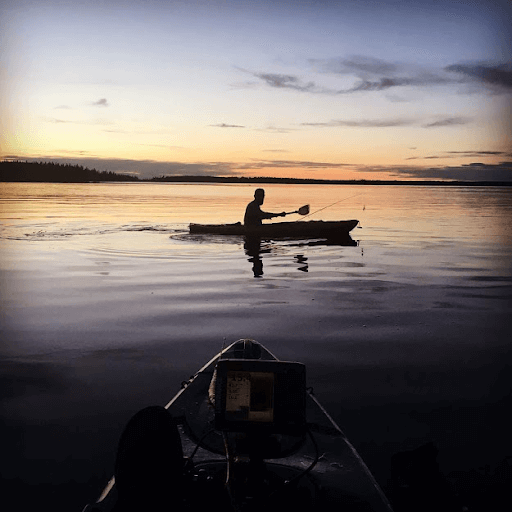Walleye Fishing Techniques for Kayak Anglers
I’ve been kayak fishing for a number of years and over that time I have found that there are a few techniques that really lend themselves well to kayak fishing for walleye. Everyone has their own take on how to fish and, as long as you're catching fish, who’s to say what's right? What follows are some of my pro-tips for the most common walleye fishing techniques.
Trolling:
Trolling is my number one technique when fishing from a kayak. The slow, relaxed pace of kayaks just lends itself well to trolling anything from spoons to spinner rigs or large crank baits. My all time favorite is to troll a floating but deep diving crank bait way out behind my kayak, such as the Berkley Flicker Minnow. The Flicker Minnow drives hard to the bottom and has a very prominent side to side action. You can tell when you have dialed in the perfect speed by watching the tip of your rod as you paddle. The rod will begin to oscillate in big, wide motions at relatively slow speeds. That’s exactly what you’re looking for, the most side to side action at the slowest speed possible. It will drive the fish crazy!
Jigging:
My second favorite technique is jigging in deep water for walleye. The most commonly used setup is a standard jig head with a minnow. I find that on hot days, if the minnows are not in a cooler, they can turn nasty in a hurry. Instead, I’ve begun to rely more on the Gulp! Alive! minnows and other soft plastics. The Gulp! Alive! still give off a scent which is key for walleye and, unlike other plastics, are completely biodegradable. In water up to 15 feet I use a 1/4 oz jig, from 15-30 feet I will switch to a 3/8 oz jig to quickly get to the bottom.
Casting:
Casting to specific targets and staying in one spot can get tricky if there’s even the slightest wind. With kayaks being so light and things like rods, flags and nets sticking straight up like sails, the wind can really push you around. An anchor and anchor trolley is critical in these situations. I like to keep my anchor and rope tucked behind my seat for easy deployment. I’ll also keep the end of my anchor line tied off so that I never have to think about it. When I get to a fishy spot, it's quick to drop anchor and begin casting away.
You won’t always have to use an anchor though. A slight breeze can be used to your advantage. When I find the wind blowing parallel to a bank or structure, I will paddle upwind and let the breeze gently push me back down along it. That way, as I drift along, I can work the bank or structure with my lure of choice.
Kayak fishing comes with a unique set of challenges but it’s a sport that has much to offer and a hobby I really enjoy. For more fishing related content, be sure to check out my website linked below as well as the other kayak fishing articles here on the Aquabatics blog!
Tight lines,
Chris Fonos
FB and Insta: @StringTheoryAngling
www.stringtheoryangling.ca







